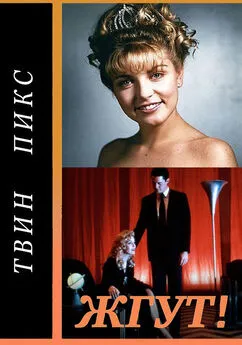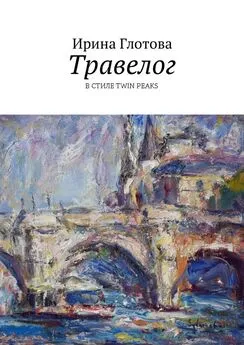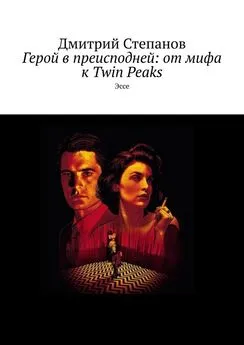Peake, Mervyn - 02 Gormenghast
- Название:02 Gormenghast
- Автор:
- Жанр:
- Издательство:неизвестно
- Год:неизвестен
- ISBN:нет данных
- Рейтинг:
- Избранное:Добавить в избранное
-
Отзывы:
-
Ваша оценка:
Peake, Mervyn - 02 Gormenghast краткое содержание
02 Gormenghast - читать онлайн бесплатно полную версию (весь текст целиком)
Интервал:
Закладка:
Once away from the death-chamber and a peculiar lightness sang in their bones.
'You were right, Splint, my dear fellow... quite right. We are free, and no mistake,' Spiregrain's voice, thin, sharp, academic, had a buoyancy in it that caused his confederates to turn to him.
'I knew you had a heart under it all,' wheezed Throd. 'I feel the same.'
'No more Angels to look forward to!' yelled Splint, in a great voice.
'No more longing for Life's End,' boomed Throd.
'Come, friends: screamed the glass-faced Spiregrain, forgetting his dignity, 'let us begin to live again!' and catching hold of their shoulders, he walked them rapidly along the corridor, his head held high, his mortar-board at a rakish angle. Their three gowns streamed behind them, the tassels of their headgear also, as they increased their pace. Turning this way and that, almost skimming the ground as they went, they threaded the arteries of cold stone until, suddenly, bursting out into the sunshine on the southern side of Gormenghast, they found ahead of them the wide sun-washed spaces, the tall trees fringing the foothills, and the mountain itself shining against the deep blue sky. For a moment the memory of the picture in their late master's room flashed through their minds.
'Oh, lush!' they cried. 'Oh, lush it is, for ever!' And, breaking into a run and then a gallop, the three enfranchised professors, hand in hand, their black gowns floating on the air, bounded across the golden landscape, their shadows leaping beside them.
FOURTEEN
It was in Bellgrove's class, one late afternoon, that Titus first thought consciously about the idea of colour: of things having colours: of everything having its own particular colour, and of the way in which every particular colour kept changing according to where it was, what the light was like, and what it was next to.
Bellgrove was half asleep, and so were most of the boys. The room was hot and full of golden motes. A great clock ticked away monotonously. A bluebottle buzzed slowly over the surfaces of the hot window-panes or from time to time zithered its languid way from desk to desk. Every time it passed certain desks, small inky hands would grab at it, or rulers would smack out through the tired air. Sometimes it would perch, for a moment, on an inkpot or on the back of a boy's collar and scythe its front legs together, and then its back legs, rubbing them, scything them, honing them, or as though it were a lady dressing for a ball drawing on a pair of long, invisible gloves.
Oh, bluebottle, you would fare ill at a ball! There would be none who could dance better than you; but you would be shunned: you would be too original: you would be before your time. They would not know your steps, the other ladies. None would throw out that indigo light from brow or flank - but, bluebottle, they wouldn't 'want' to. There lies the agony. Their buzz of converse is not yours, bluebottle. You know no scandal, no small talk, no flattery, no jargon: you would be hopeless, for all that you can pull the long gloves on. After all, your splendour is a kind of horror-splendour. Keep to your inkpots and the hot glass panes of schoolrooms and buzz your way through the long summer terms. Let the great clock-ticks play counterpoint. Let the swish of a birch, the detonation of a paper pellet, the whispered conspiracy be your everlasting pards.
Down generations of boys, buzz, bluebottle, buzz in the summer prisons - for the boys are bored. Tick, clock, tick! Young Scarabee's on edge to fight the 'Slogger' - young Dogseye hankers for his silkworms' weaving - Jupiter minor knows a plover's nest. Tick, clock, tick!
Sixty seconds in a minute; sixty minutes in an hour; sixty times sixty.
Multiply the sixes and add how many noughts? Two. I suppose. Six sixes are thirty-six. Thirty-six and two noughts is 3,600. Three thousand and six hundred seconds in an hour. Quarter of an hour is left before the silkworms - before the 'Slogger' - before the plover's nest. Buzz-fly, buzz! Tick, clock, tick! Divide 3,600 by four and then subtract a bit because of the time taken to work it all out.
4/3600
900
Nine hundred seconds! Oh, marvellous! marvellous! Seconds are so small.
One - two - three - four - seconds are so huge.
The inky fingers scrubble through the forelock - the blackboard is a grey smear. The last three lessons can be seen faintly one behind the other - like aerial perspective. A fog of forgotten figures - forgotten maps - forgotten languages.
But while Bellgrove was sleeping - while Dogseye was carving - while the clock ticked - while the fly buzzed - while the room swam in a honey-coloured milky-way of motes - young Titus (inky as the rest, sleepy as the rest, leaning his head against the warm wall, for his desk was flush with the leather) had begun to follow a train of thought, at first lazily, abstractedly, without undue interest - for it was the first train of thought that he had ever troubled to follow very far. How lazily the images separated themselves from one another or adhered for a moment to the tissue of his mind!
Titus became dreamily interested, not in their sequence but in the fact that thoughts and pictures could follow one upon the other so effortlessly. And it had been the colour of the ink, the peculiar dark and musty blue of the ink in its sunken bowl in the corner of his desk, which had induced his eyes to wander over the few objects grouped below him. The ink was blue, dark, musty, dirtyish, deep as cruel water at night: what were the other colours? Titus was surprised at the richness, the variety. He had only seen his thumb-marked books as things to read or to avoid reading: as things that got lost: things full of figures or maps. Now he saw them as coloured rectangles of pale, washed-out blue or laurel green, with the small windows cut out of them where, on the naked whiteness of the first page, he had scripted his name.
The lid of the desk itself was sepia, with golden browns and even yellows where the surface had been cut or broken. His pen, with its end chewed into a subdividing tail of wet fronds, shimmered like a fish, the indigo ink creeping up the handle from the nib, the green paint that was once so pristine blurred with the blue of the ink at the pen's belly, and then the whitish mutilated tail.
He even saw his own hand as a coloured thing before he realized it was part of him; the ochre colour of his wrist, the black of his sleeve; and then... and then he saw the marble, the glass marble beside the inkpot, with its swirling spirals of rainbow colours twisted within the clear, cold white glass: it was wealth. Titus fingered it and counted the coloured threads that spiralled within - red, yellow, green, violet, blue... and their white and crystal world, so perfect, all about them, clear and cold and smooth, heavy and slippery. How it could clink and crack like a gunshot when it struck another! When it skidded the floor and struck! Crack like a gunshot on the round and brilliant forehead of its foe! Oh, beautiful marbles! Oh, blood-alleys! Oh, clouded ones, a-swim in blood and milk! Oh, crystal worlds, that make the pockets jangle - that make the pockets heavy!
How pleasant it was to hold that cold and glittering grape on a hot summer afternoon, with the Professor asleep at his high carved desk! How lovely it was to feel the cold slipping thing in the hot palm of his sticky hand! Titus clenched it and then held it against the light. As he rolled it between his thumb and forefinger the coloured threads began to circle each other: to spiral themselves round and round and in and out in endless convolutions. Red: yellow: green: violet: blue... Red - yellow - green - red... yellow... red... 'red'. Alone in his mind the red became a thought - a colour-thought - and Titus slipped away into an earlier afternoon. The ceiling, the walls, the floor of his thought were red: he was enveloped in it; but soon the walls contracted and all the surfaces dwindled together and came at last to a focus; the blur, the abstraction had gone, and in its place was a small drop of blood, warm and wet. The light caught it as it shone. It was on his knuckle, for he had fought a boy in this same classroom a year ago - in that earlier afternoon. A melancholy anger crept over Titus at this memory. This image that shone out so redly, this small brilliant drop of blood - and other sensations, flitted across this underlying anger and brought on a sense of exhilaration, of self-confidence, and fear also at having spilled this red liquid - this stream of legendary yet so real crimson. And the bead of blood lost focus, became blurred, and then, changing its hazy contour, became a heart... a heart. Titus put his hands against his small chest. At first he could feel nothing, but moving his finger-tips he felt the double-thud, and the drumming rushed in from another region of his memory: the sound of the river on a night when he had been alone by the high bulrushes and had seen between their inky, rope-thick columns a sky like a battle.
And the battle-clouds changed their shapes momently, now crawling across the firmament of his imagination like redskins, now whipping like red fish over the mountains, their heads like the heads of the ancient carp in Gormenghast moat, but their bodies trailing behind in festoons like rags or autumn foliage. And the sky, through which these creatures swam, endlessly, in multitudes, became the ocean and the mountains below them were under-water corals, and the red sun became the eye of a subaqueous god, glowering across the sea bed. But the great eye lost its menace, for it became no bigger than the marble in Titus' hand: for, wading towards him hip deep through the waters, dilating as they neared until they pressed out and broke the frame of fancy, was a posse of pirates.
They were as tall as towers, their great brows beetling over their sunken eyes, like shelves of overhanging rocks. In their ears were hoops of red gold, and in their mouths scytheedged cutlasses a-drip. Out of the red darkness they emerged, their eyes half closed against the sun, the water at their waists circling and bubbling with the hot light reflected from their bodies, their dimensions blotted out all else: and still they came on, until their wire-glinting breasts and rocky heads filled out the boy's brain. And still they came on, until there was only room enough for the smouldering head of the central buccaneer, a great salt-water lord, every inch of whose face was scabbed and scarred like a boy's knee, whose teeth were carved into the shapes of skulls, whose throat was circled by the tattooing of a scaled snake. And as the head enlarged, an eye became visible in the darkness of its sockets, and in a moment nothing else hut this wild and sinister organ could be seen. For a short while it stayed there, motionless. There was nothing else in the great world but this - globe. It 'was' the world, and suddenly like the world it rolled. And as it rolled it grew yet again, until there was nothing but the pupil, filling the consciousness; and in that midnight pupil Titus saw the reflection of himself peering forward. And someone approached him out of the darkness, of the pirate's pupil, and a rust-red pinpoint of light above the figure's brow became the coiled locks of his mother's wealth of hair. But before she could reach him her face and body had faded and in the place of the hair was Fuchsia's ruby; and the ruby danced about in the darkness, as though it were being jerked on the end of a string. And then it, also, was gone and the marble shone in his hand with all its spiralled colours - yellow, green, violet, blue, red... yellow... green... violet... blue... yellow... green... violet... yellow... green... yellow... 'yellow'.
And Titus saw quite clearly not only the great sunflower with its tired, prickly neck which he had seen Fuchsia carrying about for the last two days, but a hand holding it, a hand that was not Fuchsia's. It held the heavy plant aloft between the thumb and forefinger as though it was the most delicate thing in the world. Every finger of the hand was aflame with gold rings, so that it looked like a gauntlet of flaming metal- an armoured thing.
Читать дальшеИнтервал:
Закладка:



